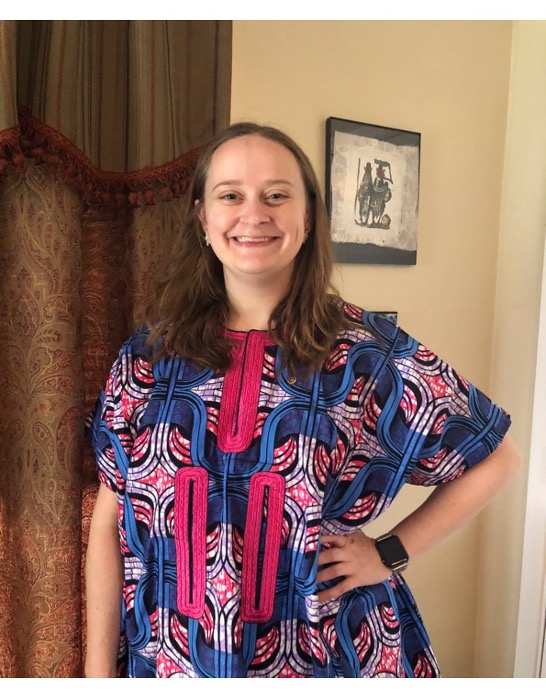The Department of Modern Languages is proud to announce that Dr.
Sarah Djos-Raph, Ph.D. candidate in Francophone Studies wins prestigious “Women in French” Award
Mon, 01/30/2023 - 7:25pm
 Sarah Djos-Raph, a Ph.D. candidate in Francophone Studies and a graduate teaching assistant in French, recently won the prestigious Women in French Award (2022). "Objectifying and Objecting Objects: Looting to Rooting? How the American Black Lives Matter Movement influences French Restitution in Benin," was the title of her essay, which will be published in the Women In French Journal. We sat with Sarah for an interview in which she took us through her journey with French and her recent success:
Sarah Djos-Raph, a Ph.D. candidate in Francophone Studies and a graduate teaching assistant in French, recently won the prestigious Women in French Award (2022). "Objectifying and Objecting Objects: Looting to Rooting? How the American Black Lives Matter Movement influences French Restitution in Benin," was the title of her essay, which will be published in the Women In French Journal. We sat with Sarah for an interview in which she took us through her journey with French and her recent success:
Can you tell us a little about the journey that lead you to this award?
“My love for French began when I studied abroad with the Rotary club in my junior year of high school in France. I then was given the opportunity to learn French at the university and study in Canada. After graduating, I worked in the Peace Corps in West Africa. My husband is from Benin, so that's sort of where my lines crossed with this intersection of French and women's studies and so when we got back to having some kids, we decided to continue education and Benin has always been an interest of mine. Even though I was far away as this political journey was happening within Benin to receive these artifacts back, I was staying up to date with what was happening."
What impact do you think this award will have on the field of French and Francophone Studies and your career?
“This paper explores the BLM (Black Lives Matter) movement in France and the return of cultural patrimony to Benin, West Africa. I think that the work has given me more interest in reading about history and has led me to be exposed to more experiences from Beninese women through the history of these pieces. I also think the impact in the field is really to showcase things that are happening. You might think the big question was really, "why"? It doesn't really matter if they have these artifacts they're not being used or what does that mean? So, I was trying to look get at it from an angle for the youth community since this paper presents historical data from a Beninese perspective and gives hope to the younger generation in terms of cultural heritage”.
What message do you have for all the women out there who might come across this interview?
“Women in French I've learned is very interesting because although it's not only women who are part of this society. It really tries to highlight and honor women's voices within French Studies. So, although the article doesn't necessarily put women at the forefront I think that it's interesting to place Benin as a focal point, especially in this situation where they're returning artifacts because it's allowing the Beninese message to get through. I would like people to become more familiar with the country of Benin for its rich history and culture”.
“Right now, I am working on my doctoral dissertation about Beninese women writers of the 21st century in the genres of collective anthologies and children’s literature”.
Félicitations, Sarah! Le Département de langues modernes est très fier de toi !
